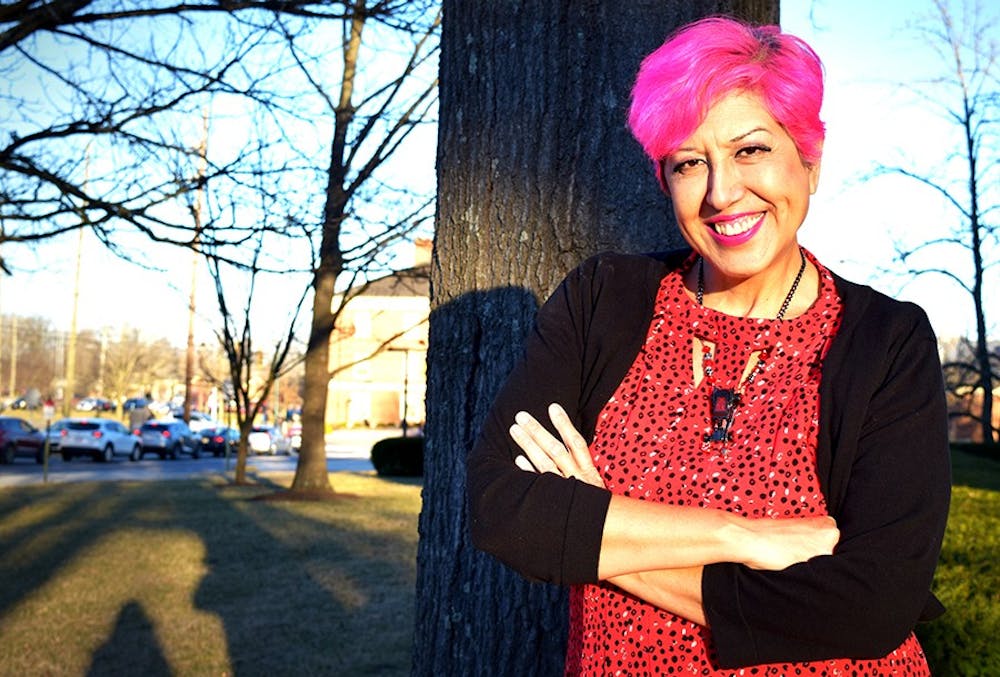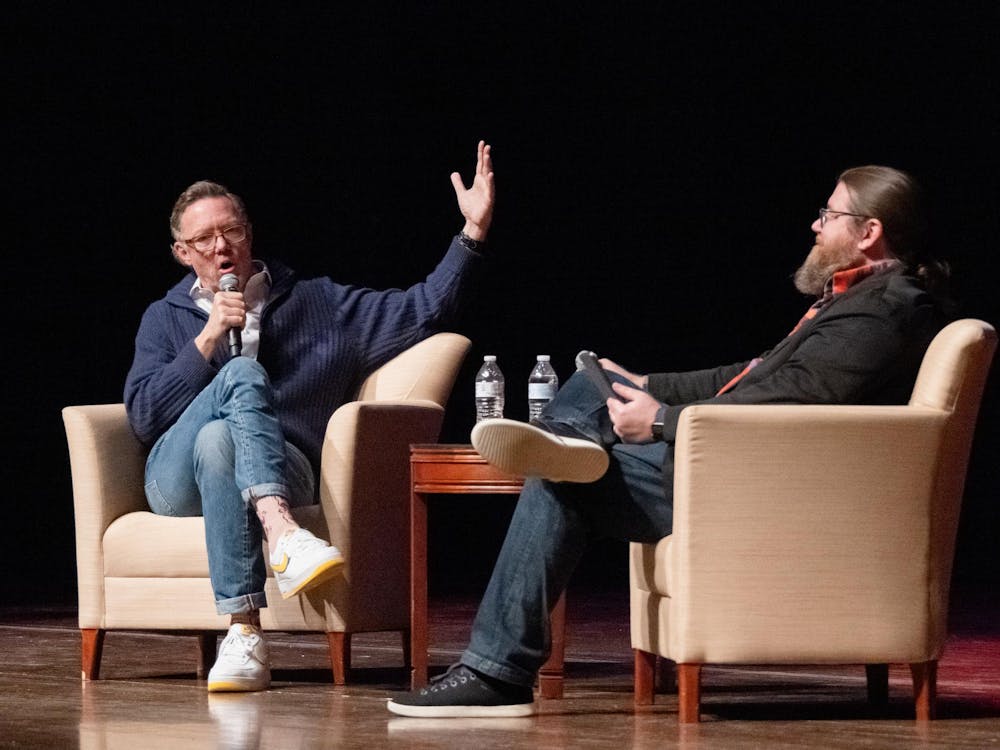With fluorescent pink hair and a matching shade of lipstick, Alice Bag is not your conventional chicana woman in her 50s. She was born in east Los Angeles in 1958, and was the lead singer in The Bags, a punk band formed in the mid 1970s.
And this past Friday, Bag was the keynote speaker at Miami's 16th annual Race, Gender, Class, and Sexuality Symposium.
The theme of this year's symposium, which was co-sponsored by Wright State University, was "Intersectional Analyses of the Arts and Performance." It lasted from 8 a.m. to 6 p.m. and was comprised of a series of lectures and performances all focusing on the junction between performance and identity.
"The arts speak to our times," said Roxanne T. Ornelas, the head of the women's, gender, and sexuality studies department at Miami. "Things have been difficult politically these past few months, and artists have been responding. So, we decided to focus this symposium on the arts and performance this year."
Bag represented the theme of the day as she spoke of how her music reflected her identities as a bisexual chicana woman raised in an abusive home. She played a couple of her songs: "White Justice,"which was based off of the rioting and police brutality she experienced at the Chicano Moratorium in 1970, and "Violence Girl," which described how she embraced a punk lifestyle after suffering a difficult childhood. Bag also read excerpts from two of her books, "Pipe Bomb for the Soul" and "Violence Girl."
Additionally, Bag described how androgynous artists like David Bowie and Patti Smith helped her to formulate her own identity as a queer woman who was often misgendered or discriminated against because of her eccentric and unconventional lifestyle.
"Patti Smith was not your typical girl group," Bag said. "She had what I wanted. At one time I wanted to be her and I wanted to be with her."
Nikki Hammarlund, a sophomore student at Miami, described her appreciation of Bag's perspective on punk.
"I really liked having someone from the punk scene describe how punk is about expressing the things that people put you down for and drawing strength from that," she said. "It's self-love."
As an artist, Bag chooses to not hide her political views.
"My personal preference is to be open about my politics," Bag said. "But I don't think that as an artist you have to be involved in politics. I don't like to tell other artists what to do."
Another one of Bag's major influences was the book, "Pedagogy of the Oppressed" by Paulo Freire. The book argues that education is often used to indoctrinate students with the values of the dominant class. Bag feels that there were holes in her own education and wanted to help combat this process.
Enjoy what you're reading?
Signup for our newsletter
"My favorite tool for fighting back is music," Bag said on her reaction to Freire's book. "So, I wrote a song about it."
The song that she wrote, "Programmed," describes how the school system "programs" mainstream ideas and morals into its students and oppresses their individuality.
"The politics of being ourselves places the promise and responsibility of a better future on each of us," she said.




